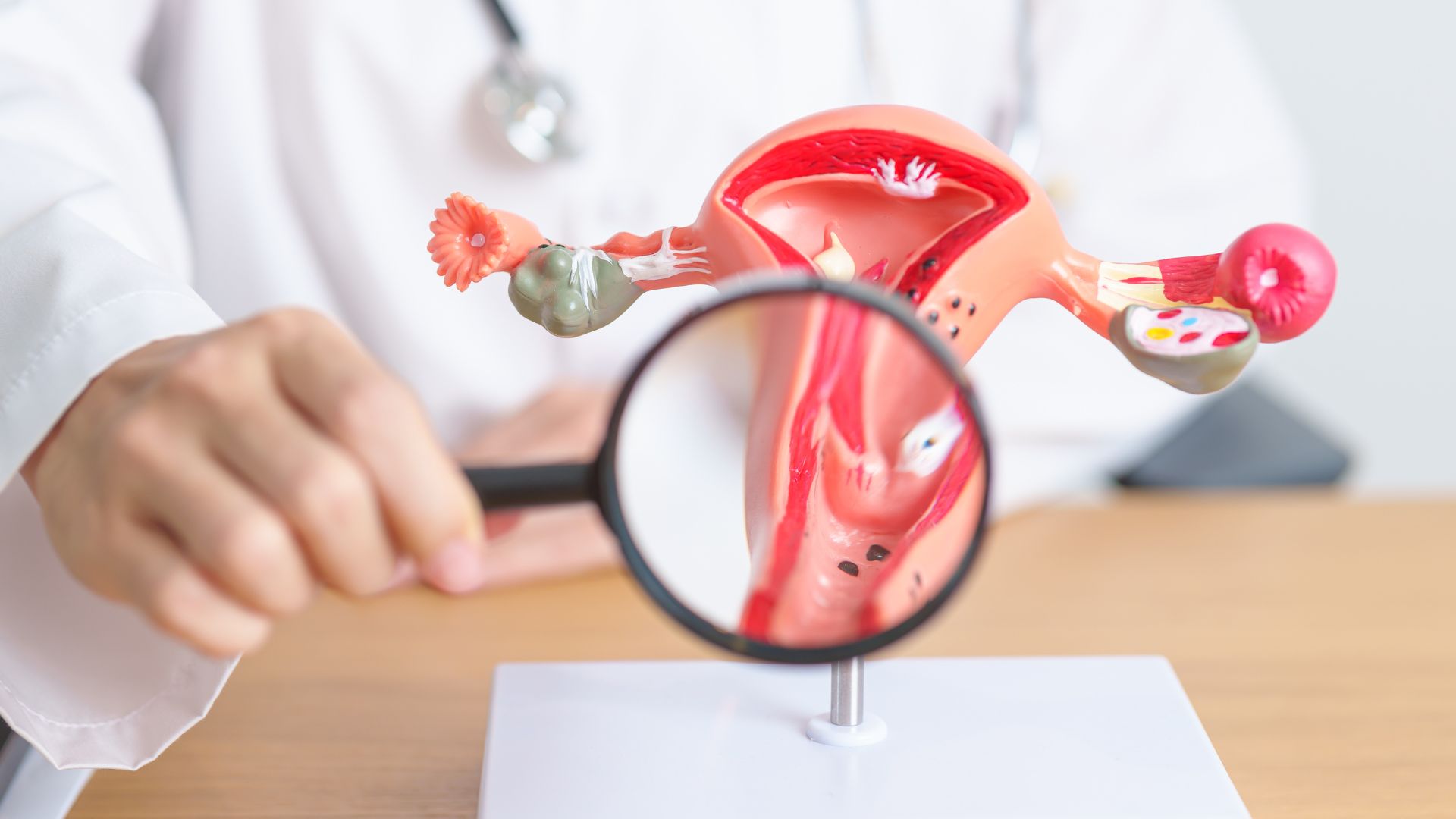
Key Takeaways
| Key Points | Details |
|---|---|
| Understanding Endometriosis | Know that stages 3 & 4 significantly impact fertility |
| IVF Suitability | IVF can be a viable option for achieving pregnancy despite severe endometriosis. |
| Surgical Preparation | Laparoscopic surgery may improve IVF outcomes by reducing pelvic inflammation |
| Protocol Personalization | Treatment must be tailored, considering individual health profiles and endometriosis severity |
| Support and Resources | Emphasize the importance of psychological support and patient education |
Everything You Need to Know About Endometriosis Treatment: Introduction
Endometriosis is a gynecological condition where tissue similar to the lining inside the uterus is found outside the uterus. This can include areas such as the ovaries, fallopian tubes, and the pelvic peritoneum.
The presence of these endometrial-like tissues outside the uterus leads to a chronic inflammatory reaction that can cause severe pain, irregular bleeding, and significant challenges in fertility.
Despite its prevalence, affecting nearly 10% of women globally, endometriosis remains underdiagnosed due to the variability of symptoms and the extent to which it affects individual lives.
In its more severe forms—stages 3 and 4—endometriosis can lead to deep infiltrating lesions and extensive adhesions, which severely disrupt the pelvic anatomy and reduce fertility.
Impact on Fertility
Severe endometriosis often impinges significantly on a woman’s ability to conceive naturally.
The adhesions and scarring can obstruct the fallopian tubes, whereas endometrial cysts, particularly those on the ovaries known as endometriomas, can affect the quality and quantity of eggs.
Moreover, the inflammation associated can alter the pelvic environment, adversely impacting implantation rates.
Under these challenging conditions, In Vitro Fertilization (IVF), a type of assisted reproductive technology, emerges as a beacon of hope for many.
IVF involves stimulating the ovaries to develop multiple eggs, retrieving these eggs from the ovaries, and fertilizing them in a lab using sperm.
Subsequently, the embryos are transferred back into the uterus, hoping for successful implantation and pregnancy.
Why Consider IVF for Severe Endometriosis?
For women with severe endometriosis, the natural conception routes are often hindered by physical blockages and biological disruptions caused by the disease.
IVF helps to bypass some of these challenges:
- Bypasses Fallopian Tubes: IVF can circumvent the issue of blocked fallopian tubes by directly implanting embryos into the uterus.
- Optimizes Egg Quality: Through controlled stimulation, IVF can help in harvesting healthier eggs. This is crucial as endometriosis can compromise egg quality.
- Improves Implantation Chances: Specialist handling and the preparation of the uterine lining in IVF increase the chances of embryo implantation even in an inflamed pelvic environment.
While considering IVF, one of the major concerns for many potential parents is the success rate of IVF especially in the context of endometriosis.
It’s pivotal to discuss realistic expectations for IVF outcomes with a fertility expert who has experience managing severe endometriosis cases.
Patients often inquire about the cost of IVF in India and look for the most optimal ways to manage these expenses.
Understanding the common questions about IVF and connecting with support groups can provide invaluable resources and emotional backing for individuals undergoing this intense treatment. Moreover, choosing the right clinic and specialist is fundamental in this journey.
Resources that guide in choosing the best IVF clinic and finding an IVF doctor in India can make significant differences in treatment outcomes.
In the subsequent parts of the article, we will delve deeper into surgical treatments prior to IVF, specific IVF protocols for severe endometriosis, lifestyle factors, support systems, and navigating the legal and ethical landscape of fertility treatments in India.
Surgical Treatments Before IVF
For many women with severe endometriosis, surgery may be suggested before attempting IVF.
The primary objective of this approach is to remove as much of the endometriosis as possible to reduce pelvic pain, improve ovarian function, and consequently, enhance the odds of a successful IVF cycle.
Types of Surgical Options
Laparoscopic Excision Surgery:
The preferred method for treating endometriosis surgically is laparoscopic excision surgery.
This minimally invasive technique involves the insertion of a camera and specialized instruments through small abdominal incisions, allowing the surgeon to accurately identify and remove areas of endometriosis.
Benefits:
- Decreased Inflammation: By removing endometriotic lesions, inflammatory conditions in the pelvic region are reduced, potentially enhancing egg quality and implantation chances.
- Improved Fertility Outlook: Studies have shown that excising endometriosis can improve fertility, making subsequent IVF procedures potentially more successful.
- Reduced Pain Symptoms: Effective removal of endometrial implants can also alleviate chronic pain, which is a common symptom for many patients.
Hysterectomy and Oophorectomy:
In extreme cases where pain and lesions are pervasive, and if family building has been completed or alternative options are considered, more radical procedures such as hysterectomy (removal of the uterus) or oophorectomy (removal of the ovaries) may be considered.
Considerations before Surgery
Before proceeding with surgery, several factors need to be thoroughly evaluated:
- Stage and Severity of Endometriosis: The extent of the disease guides the surgical approach.
- Age and Fertility Goals: Younger patients might opt for conservative surgeries to preserve fertility, crucial when planning for IVF.
- Previous Surgeries and Outcomes: Prior outcomes can inform the feasibility and scope of further surgical interventions.
- Surgeon’s Expertise: The experience of the surgeon in endometriosis excision is vital for optimal results. Patients should seek experienced surgeons, potentially through resources like finding an IVF doctor in India.
Specific IVF Protocols for Severe Endometriosis
Recognizing that endometriosis can affect IVF outcomes, fertility specialists might adapt the IVF protocols to increase the chances of success.
Adapted IVF Protocols
Gonadotropin-Releasing Hormone (GnRH) Agonists: Before starting ovulation induction, the use of GnRH agonists can help to downregulate hormones and reduce the activity of existing endometriosis, creating a more favorable baseline environment for IVF.
Customized Ovarian Stimulation: The stimulation protocol may be adjusted based on the patient’s ovarian reserve and response to previous treatments. This personalized approach aims to harvest a suitable number of quality eggs without exacerbating symptoms.
Embryo Quality and Transfer Strategy: High-quality embryos are crucial, especially in the context of endometriosis. Advanced embryology techniques, such as preimplantation genetic testing (PGT), may be utilized to select embryos with the best potential for successful pregnancy.
Conclusion
For women battling severe endometriosis, combining surgical intervention with tailored IVF protocols offers a well-rounded approach to overcome fertility challenges.
Understanding the interplay between surgical treatment and reproductive technologies is crucial, as it harnesses the potential to optimize outcomes and fulfill the parenthood dream.
The journey through managing endometriosis with an eye towards successful IVF calls for careful planning, expert medical guidance, and personalized care strategies.
Lifestyle Factors and Support Systems
Managing endometriosis and undergoing IVF treatments can be physically demanding and emotionally draining.
Lifestyle adjustments and robust support systems play critical roles in enhancing treatment outcomes and overall well-being.
Lifestyle Adjustments
Dietary Changes: Evidence suggests that anti-inflammatory foods can help manage endometriosis symptoms. Incorporating foods rich in omega-3 fatty acids, fruits, vegetables, and whole grains while reducing red meat and processed foods can be beneficial.
Physical Activity: Moderate exercise can help reduce estrogen levels and release endorphins, which act as natural pain relievers. However, it’s important to consult with healthcare providers to tailor an exercise regime that considers individual pain thresholds and physical conditions.
Stress Management: Techniques such as yoga, meditation, and mindfulness can alleviate stress and improve mental health, essential for coping with infertility and medical treatments.
Support Systems
Professional Counseling: Engaging with therapists who specialize in fertility issues can provide coping strategies and emotional support throughout the IVF journey.
Support Groups: Joining IVF support groups in India can connect patients with others facing similar challenges, providing a platform to share experiences and advice.
Family and Friends: Honest communication about the challenges and needs can enhance understanding and support from close friends and family.
Legal and Ethical Considerations in IVF
Navigating the legal and ethical landscape is crucial for anyone undergoing IVF in India, as these frameworks are designed to protect the patients and ensure the ethical practice of fertility treatments.
Legal Framework
India has guidelines and regulations set by bodies such as the Indian Council of Medical Research (ICMR).
These guidelines govern the ethical aspects of assisted reproduction, including consent processes, confidentiality, and the number of embryos to be transferred. Knowledge of these regulations helps patients make informed decisions and ensures treatments align with legal standards.
Ethical Considerations
Embryo Selection: Ethical concerns often arise regarding the selection and potential discard of embryos during IVF.
Discussing these concerns with medical professionals can help in understanding the practices and making ethical decisions.
Preimplantation Genetic Testing (PGT): While offering the potential to screen for abnormalities, PGT raises ethical questions about the selection criteria for embryos. It’s crucial to have detailed discussions with healthcare providers about the implications of PGT.
Conclusion
Effective management of endometriosis and the IVF process requires a holistic approach that includes lifestyle modifications and emotional support, alongside understanding the legal and ethical constraints.
By addressing these areas, individuals can enhance their resilience and improve their chances of successful outcomes from IVF treatments.
Conclusion: Navigating IVF with Severe Endometriosis
Endometriosis, particularly in its severe stages, presents significant challenges to fertility, but advancements in medical treatments like IVF provide viable paths to parenthood.
By understanding the complexities of endometriosis, opting for appropriate surgical interventions, and utilizing tailored IVF protocols, many women have successfully overcome these reproductive hurdles.
Recap of Key Strategies
- Surgical Interventions: Prior surgical treatment, such as laparoscopic excision, may improve IVF outcomes by reducing pelvic inflammation and removing obstructions.
- Tailored IVF Protocols: Adaptations in IVF treatments, including the use of GnRH agonists and customized ovarian stimulation protocols, address challenges specific to endometriosis.
- Lifestyle and Emotional Support: Incorporating lifestyle changes and establishing strong support networks are essential for managing the physical and emotional demands of IVF.
Additional Considerations
- Financial Planning: Given the cost of IVF treatments in India, it is important to plan finances ahead and explore options like insurance, loans, or financial aid from IVF centers.
- Choosing the Right Clinic: Selecting an appropriate IVF clinic is crucial. Resources provided on choosing the best IVF clinic offer guidance to ensure that the facility and its specialists are well-equipped to handle complex cases associated with severe endometriosis.
- Legal and Ethical Awareness: Familiarity with legal standards and ethical practices in IVF treatments ensures that patients are well-informed and that their treatments are conducted under the highest standards of medical ethics. This information can often be found through clinics or national health portals.
Final Thoughts
Endometriosis and infertility can be arduous journeys fraught with physical, emotional, and financial challenges.
However, the continuous advancements in medical science provide hope and multiple avenues to address these issues.
Partnering with experienced healthcare providers, staying informed about your medical and legal options, and maintaining a supportive network can significantly enhance your journey towards achieving pregnancy.






